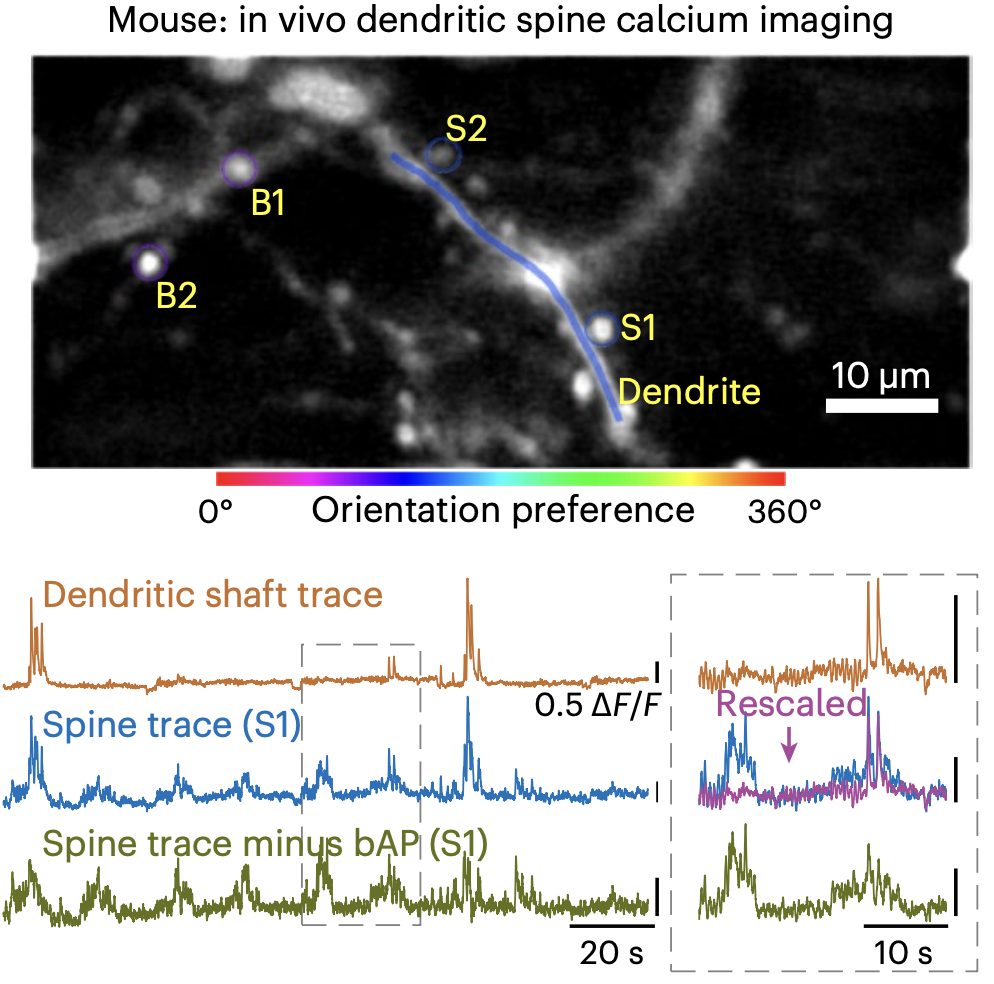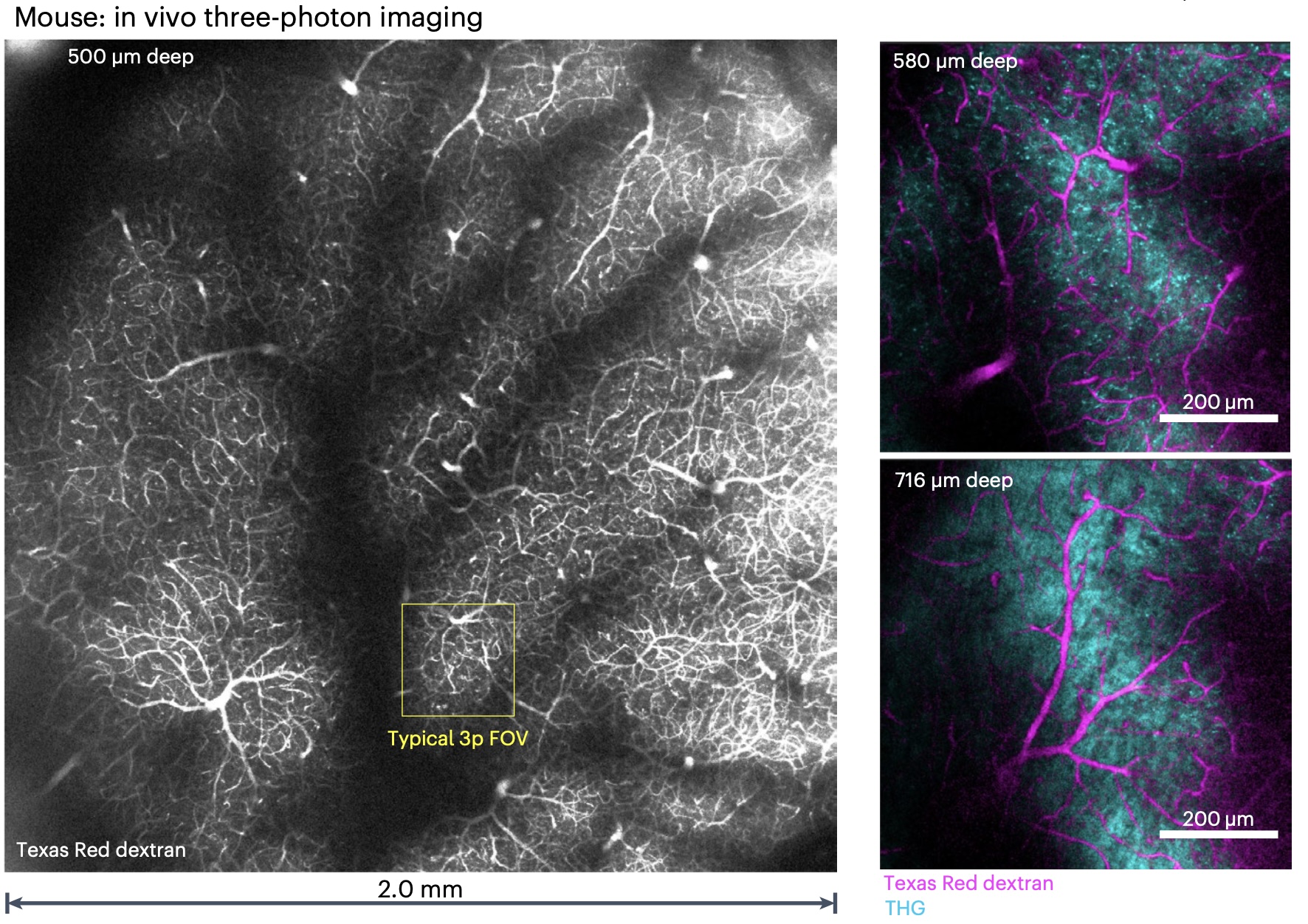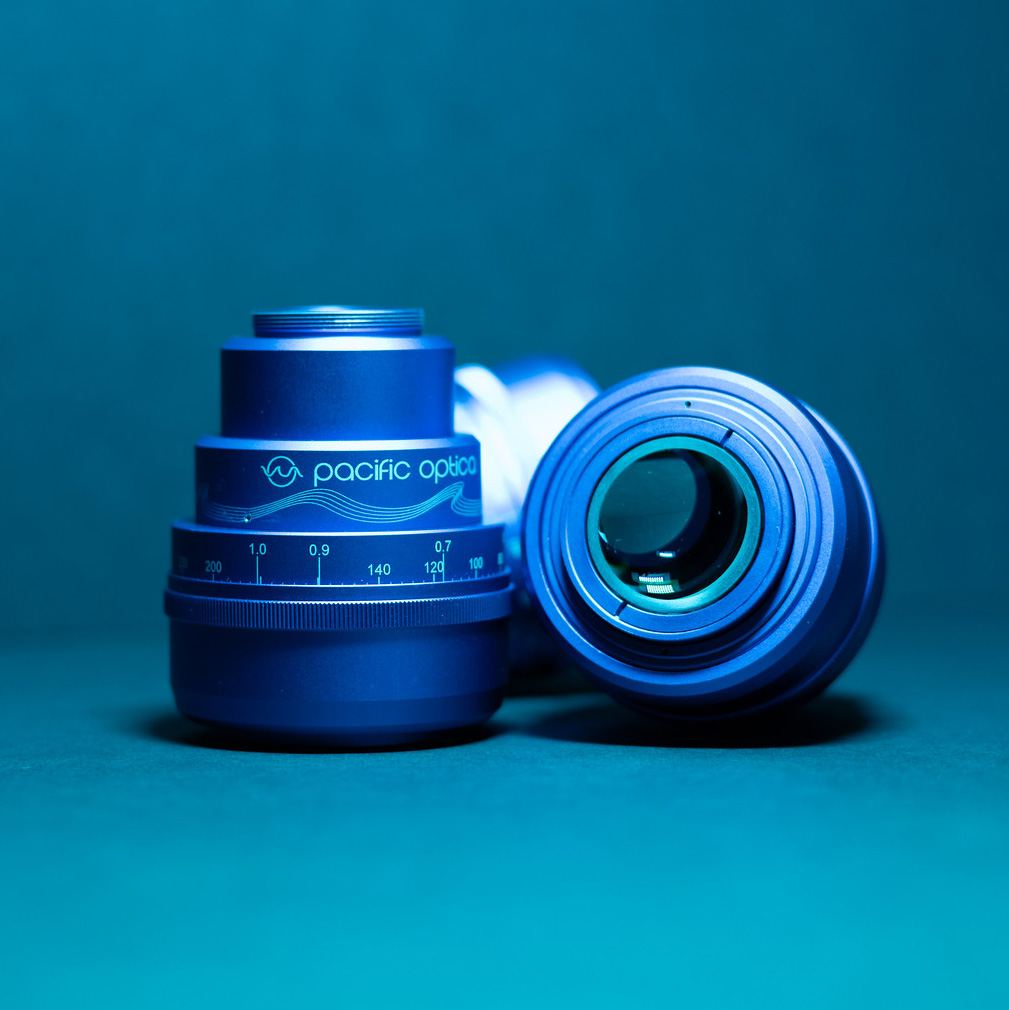The Cousa objective is the world’s first ultra-long working distance objective optimized for multiphoton imaging. Get the objective clear up and out of the way of your work!
SPECS
Working distance:
20 mm in air
Field-of-view:
2 mm x 2 mm (4 mm^2) nominal, up to 3 mm x 3 mm (9 mm^2) with +/- 5 degree scanning
Optical design:
infinity corrected, open source
Resolution:
< 0.7 microns lateral, 6 microns axial
Compatibility:
Works with a large range of imaging systems from Bruker, Sutter, Thorlabs, Neurolabware, and others.
Documents
Read all about it in the Nature Methods paper.
Zemax blackbox files (right click, ZIP)
Email info@pacificoptica.com for a quote.
See what users think…
I watch this video at least a couple times a week. It never gets old. Prisms + @Labrigger Cousa objective are game changers for striatal imaging. Congrats @BrainMadelyn @outRaajeous et al. https://t.co/XZ8RqljGgh
— Stuber Lab (@gstuber) March 20, 2024
We got this giant beast from @pacificoptica !! pic.twitter.com/PmX8TUMXdW
— Sumiya Kuroda (@_sumiyakuroda) April 20, 2024
Working distance: 20 mm, air
Numerical aperture: 0.5
Effective focal length: 20 mm (10x)
Correction collar: 0–1 mm cover glass thickness
Entrance pupil: 20 mm, near the back glass
Mounting threads: M32 × 0.75
Scanning angles: ±3° nominal, ±5° usable
Primary wavelength range: 910–930 nm
Full wavelength range: 800–1,300 nm
Antireflective coating: 400–1,350 nm
Parfocal distance: ~90 mm
Weight: 477 g
Group delay dispersion: 4,910 fs² at 920 nm



The Cousa objective provides high resolution over a large field of view, with an ultralong working distance of 20 mm. There’s nothing else like it.
Here, the Cousa objective is used to image dendritic and dendritic spine dynamics due to synaptic events and backpropagating action potentials. (Data from Ikuko Smith lab, UCSB; Liam Adsit)


